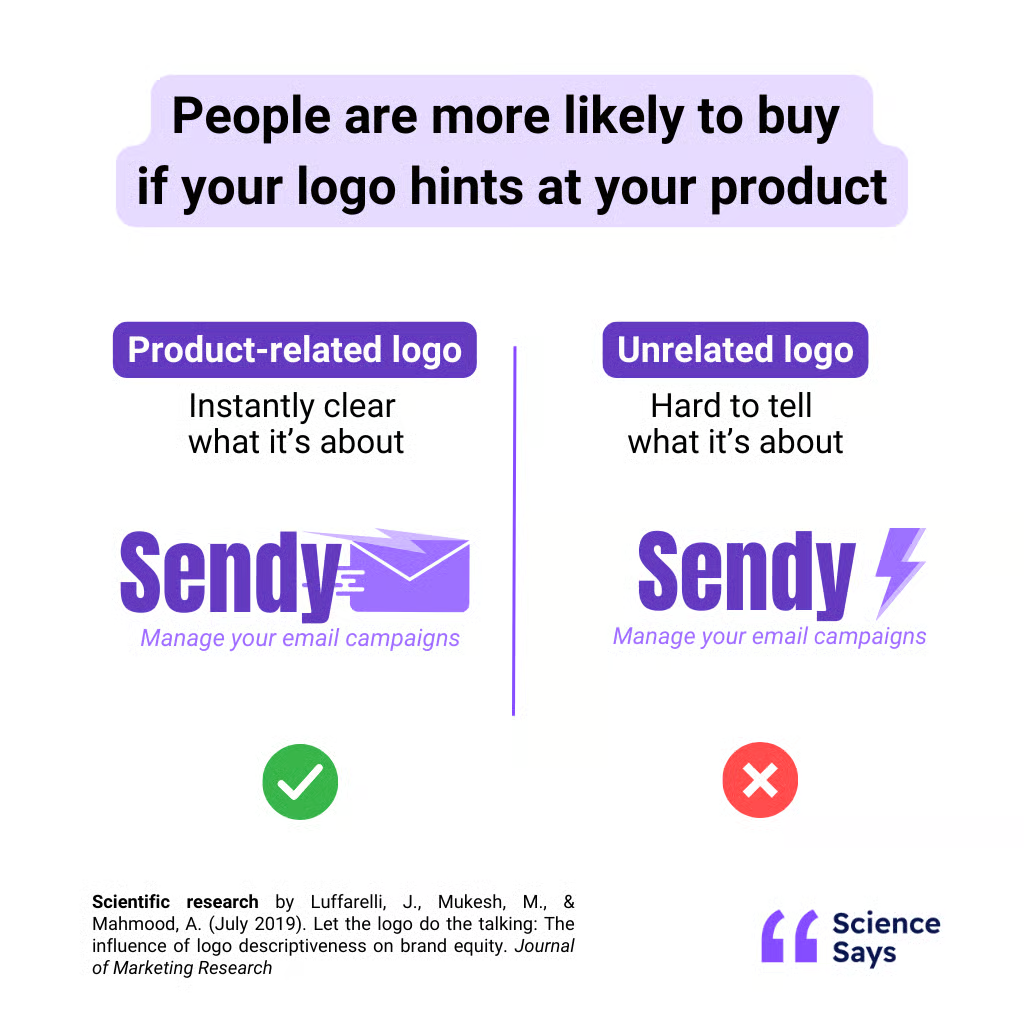Science Says a logo icon related to your offering is rated “more positively, authentic and warm, regardless of how much they liked the logos' visuals.”
Why?
Descriptive logos are easier to process so we immediately understand what the brand is about.
They also help us more easily associate the brand with the product.
This makes us think the brand is more honest and transparent.
I wonder how this will change post-AI image generation. Will unrelated icons become a signifier of human input? Are LLMs better at non-obvious icon development?

The top 5 streaming services by watch time:
- YouTube
- Netflix
- Disney (the family of streaming brands)
- Amazon Prime Video
- Roku Channel
The top 2 are firmly entrenched and that order is locked in.
But remember, reach doesn’t guarantee impact.
via EMARKETER
Who has a say and who has a vote?
We ask clients early on who has a voice and who has a vote.
The decision makers drive the process. The closer you can get to the source instead of working through translators and layers, the better.
Even if it’s just to avoid curveballs at deadline.
The fewer the votes, the faster the process can go.
I don’t know if this is good or bad news:
Morgan Stanley analysts think the US economy has been in a “rolling recession” since 2022 — and it may already be almost over.
Though I like that last bit, and the reasoning makes sense (I think).
And the Consumer Price Index increased in August.
With holiday spending projected to be down but consumer spending staying resilient, feels like we’ve hit the “something’s gotta give” moment.

